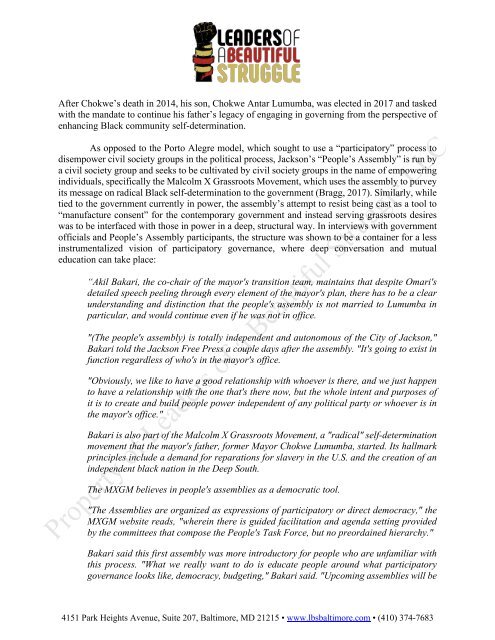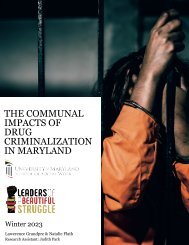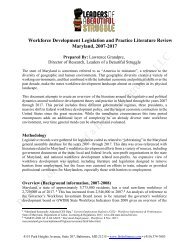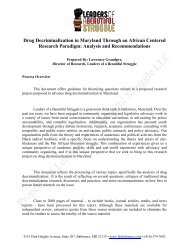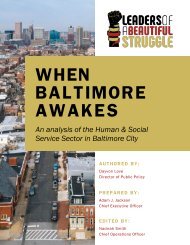Models for Participatory Budgeting
Participatory Budgeting (PB) has become a schizophrenic term, used as easily by neoliberal technocrats as it has been used by leftists seeking redistribution of wealth. As such, examining the function of any PB scheme with a critical lens is essential to determine whether it is an attempt to redistribute resources and power, or a tool to manufacture consent for the status quo and undermine/co-opt forces of resistance. While the goal of this analysis is not to delve deeply into the technical minutiae around the different processes, there is one clarification which may be useful to make at the beginning of the section. Much of what is often called PB could also be considered “participatory urban planning.” The distinction is that while budgeting denotes an explicit focus on allocating a discrete set of funds, planning seeks to take a more comprehensive survey of people's feelings, needs and problems, and generates a list of interventions based upon that feedback. Many straddle the line and include elements of both. This section will focus on processes which allocate revenue directly, will help explain why some interventions (Baltimore City Children and Youth Fund) will receive more direct attention and others (New York Cities Participatory Planning sessions) might receive less.
Participatory Budgeting (PB) has become a schizophrenic term, used as easily by neoliberal technocrats as it has been used by leftists seeking redistribution of wealth. As such, examining the function of any PB scheme with a critical lens is essential to determine whether it is an attempt to redistribute resources and power, or a tool to manufacture consent for the status quo and undermine/co-opt forces of resistance.
While the goal of this analysis is not to delve deeply into the technical minutiae around the different processes, there is one clarification which may be useful to make at the beginning of the section. Much of what is often called PB could also be considered “participatory urban planning.” The distinction is that while budgeting denotes an explicit focus on allocating a discrete set of funds, planning seeks to take a more comprehensive survey of people's feelings, needs and problems, and generates a list of interventions based upon that feedback. Many straddle the line and include elements of both. This section will focus on processes which allocate revenue directly, will help explain why some interventions (Baltimore City Children and Youth Fund) will receive more direct attention and others (New York Cities Participatory Planning sessions) might receive less.
- No tags were found...
Create successful ePaper yourself
Turn your PDF publications into a flip-book with our unique Google optimized e-Paper software.
After Chokwe’s death in 2014, his son, Chokwe Antar Lumumba, was elected in 2017 and tasked<br />
with the mandate to continue his father’s legacy of engaging in governing from the perspective of<br />
enhancing Black community self-determination.<br />
As opposed to the Porto Alegre model, which sought to use a “participatory” process to<br />
disempower civil society groups in the political process, Jackson’s “People’s Assembly” is run by<br />
a civil society group and seeks to be cultivated by civil society groups in the name of empowering<br />
individuals, specifically the Malcolm X Grassroots Movement, which uses the assembly to purvey<br />
its message on radical Black self-determination to the government (Bragg, 2017). Similarly, while<br />
tied to the government currently in power, the assembly’s attempt to resist being cast as a tool to<br />
“manufacture consent” <strong>for</strong> the contemporary government and instead serving grassroots desires<br />
was to be interfaced with those in power in a deep, structural way. In interviews with government<br />
officials and People’s Assembly participants, the structure was shown to be a container <strong>for</strong> a less<br />
instrumentalized vision of participatory governance, where deep conversation and mutual<br />
education can take place:<br />
“Akil Bakari, the co-chair of the mayor's transition team, maintains that despite Omari's<br />
detailed speech peeling through every element of the mayor's plan, there has to be a clear<br />
understanding and distinction that the people's assembly is not married to Lumumba in<br />
particular, and would continue even if he was not in office.<br />
"(The people's assembly) is totally independent and autonomous of the City of Jackson,"<br />
Bakari told the Jackson Free Press a couple days after the assembly. "It's going to exist in<br />
function regardless of who's in the mayor's office.<br />
"Obviously, we like to have a good relationship with whoever is there, and we just happen<br />
to have a relationship with the one that's there now, but the whole intent and purposes of<br />
it is to create and build people power independent of any political party or whoever is in<br />
the mayor's office."<br />
Bakari is also part of the Malcolm X Grassroots Movement, a "radical" self-determination<br />
movement that the mayor's father, <strong>for</strong>mer Mayor Chokwe Lumumba, started. Its hallmark<br />
principles include a demand <strong>for</strong> reparations <strong>for</strong> slavery in the U.S. and the creation of an<br />
independent black nation in the Deep South.<br />
The MXGM believes in people's assemblies as a democratic tool.<br />
"The Assemblies are organized as expressions of participatory or direct democracy," the<br />
MXGM website reads, "wherein there is guided facilitation and agenda setting provided<br />
by the committees that compose the People's Task Force, but no preordained hierarchy."<br />
Bakari said this first assembly was more introductory <strong>for</strong> people who are unfamiliar with<br />
this process. "What we really want to do is educate people around what participatory<br />
governance looks like, democracy, budgeting," Bakari said. "Upcoming assemblies will be<br />
4151 Park Heights Avenue, Suite 207, Baltimore, MD 21215 • www.lbsbaltimore.com • (410) 374-7683


